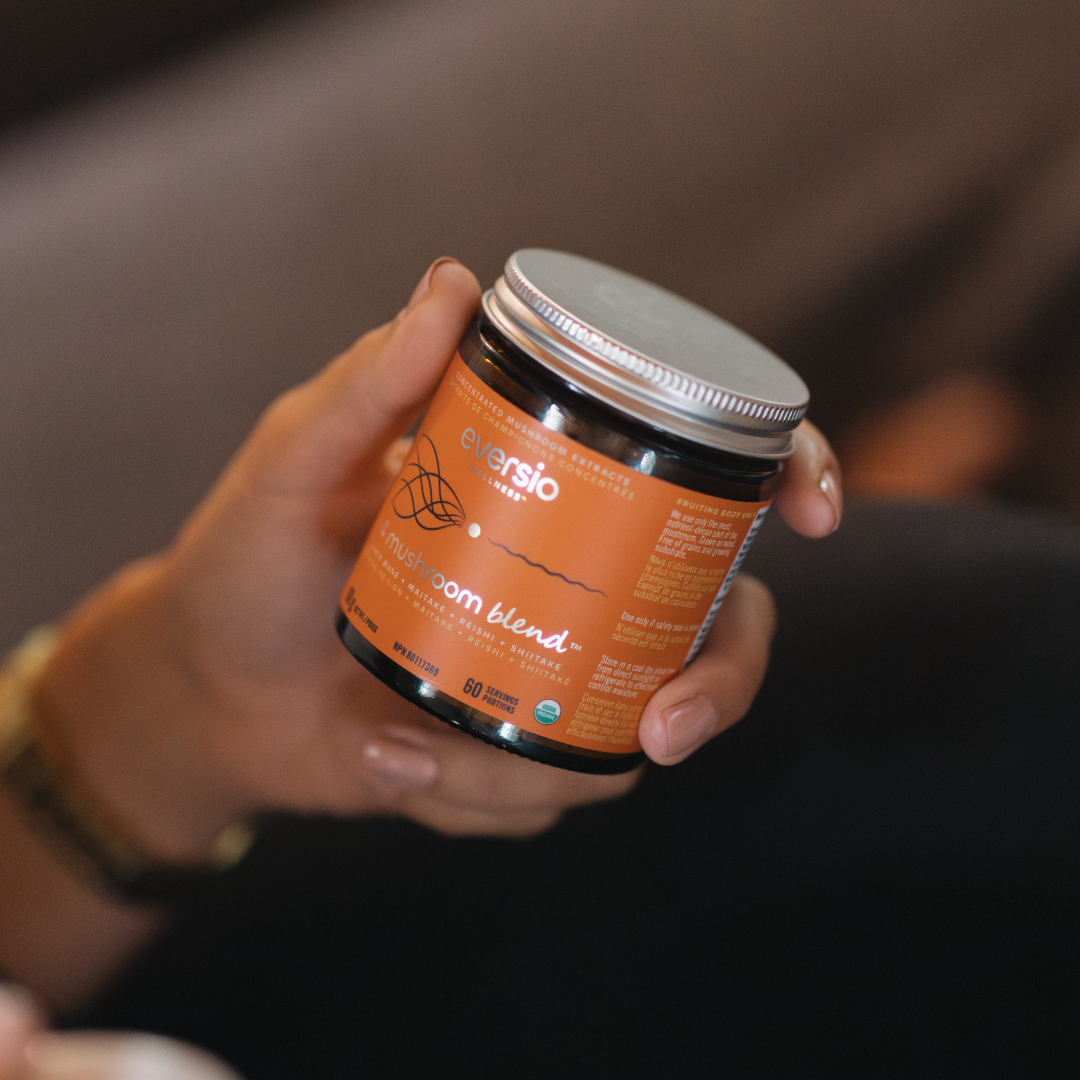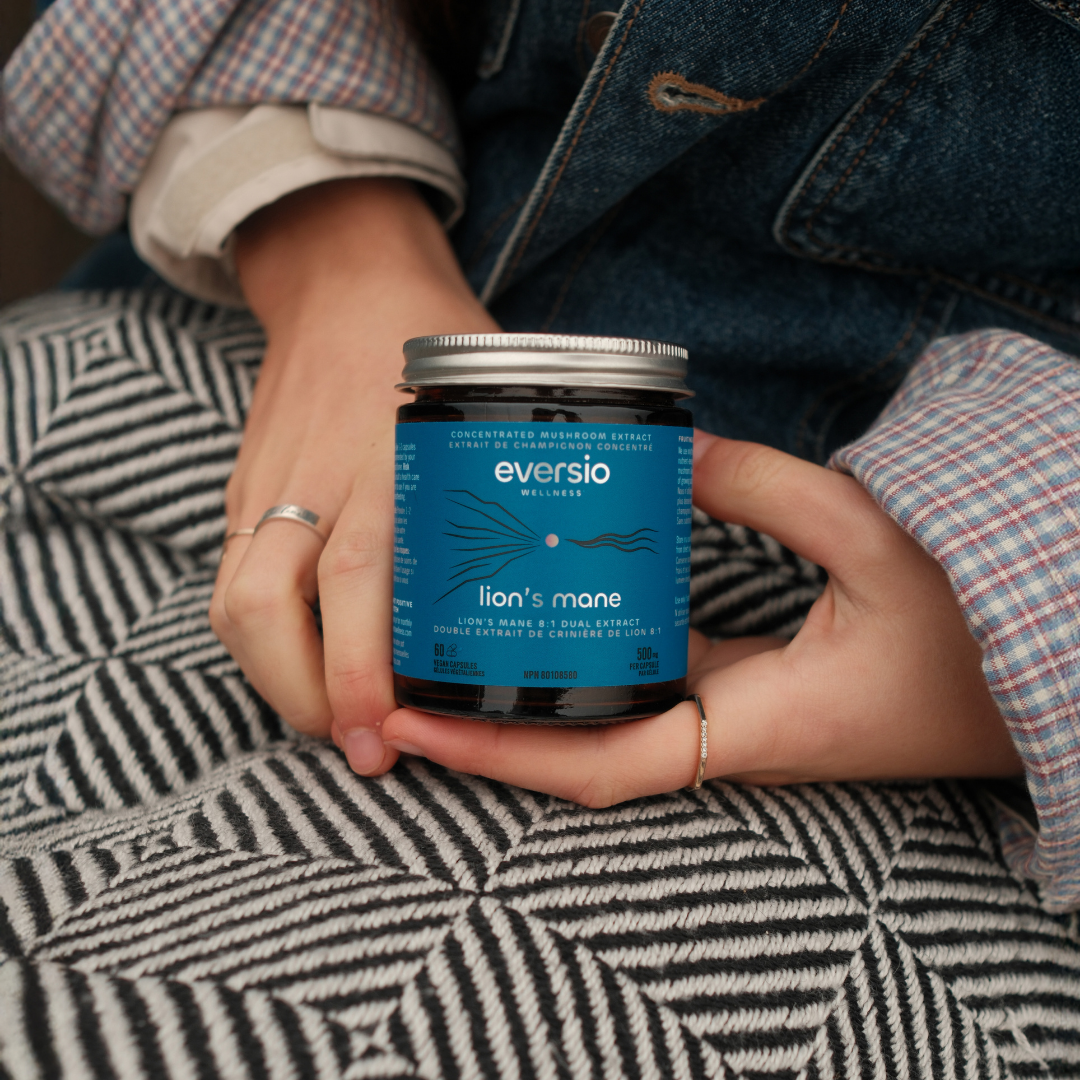January, 30 2024 | Dr. Silvana Jakupovic, ND
Functional Mushrooms and Celiac or Gluten Intolerance: What You Need to Know
The realm of functional mycology has grown significantly over the past decade, with functional mushrooms being at the forefront of mushroom research. These nutritional mushrooms offer many benefits, from immune support to digestive wellness. However, questions arise when considering the safety of mushroom supplements for individuals with specific health conditions, such as celiac disease or gluten intolerance. This blog delves into the intricate relationship between functional mushrooms and gluten-related conditions.
Celiac Disease and Gluten Intolerance: An Overview
Celiac disease is an autoimmune condition triggered by ingesting gluten, a protein found in wheat, barley, and rye. When individuals with celiac consume gluten, their immune system targets the small intestine, leading to many exacerbating symptoms and what is commonly known as a "leaky gut." The gut microbiome is thus disrupted, paving the way for various health issues. Gluten intolerance, although less severe, similarly impacts digestive wellness.
Mycology and Health: The Benefits of Functional Mushrooms
Antioxidant and Immune-Boosting Bioactive Compounds
Functional mushrooms have garnered substantial attention for their healing properties, such as immune modulation with mushrooms and gut health enhancement. Mushroom compounds like polysaccharides, terpenes, and phenols are pivotal in enhancing well-being. This has led to a surge in mushroom therapy and the use of mushroom superfoods in celiac management protocols.
Mushroom antioxidants, such as ergothioneine and glutathione, have been studied for their ability to combat oxidative stress, a critical factor in inflammation and autoimmune conditions [1]. Furthermore, immune-boosting mushrooms like Reishi and Cordyceps contain compounds that serve as mushroom adaptogens, aiding the body's natural ability to balance and regulate immune system responses.
These characteristics make mushrooms a promising option for those with autoimmune conditions like celiac disease, where the immune system mistakenly targets and damages the small intestine. Using mushroom supplements for gluten intolerance or celiac disease could provide an innovative approach to managing symptoms and improving overall health. However, it's essential to consult healthcare providers for tailored medical advice.
Lion’s Mane as a Gut-Friendly Mushroom
Nature-derived polysaccharides are becoming an increasingly popular research target as they have garnered attention for their potential in mushroom-based therapy for celiac and other gut-related conditions [2]. These unique carbohydrates, found in functional fungi like Lion's Mane and Chaga, can influence oxidative stress, inflammation, and the immune system—key factors that directly impact gut health.
Lion’s Mane, commonly known for its neuroprotective benefits, is also a treasure trove of gut-friendly mushrooms, rich in unique polysaccharides like HECP [3]. Research indicates that this particular polysaccharide not only helps in digestive health and mushrooms' ability to suppress inflammation by inhibiting markers like COX-2, but also enhances gut microbiota.

In essence, Lion’s Mane functions similarly to COX-2 inhibitors, a group of non-steroidal anti-inflammatory drugs (NSAIDs), making it a potential candidate for fungi for gut health and even treating conditions like colitis (inflammation of the intestines) [3].
Understanding the role of functional fungi for celiac or gluten intolerance is invaluable for those living a gluten-free lifestyle. The HECP polysaccharide has shown promise in treating dysbiosis—an imbalance of gut bacteria—by elevating beneficial bacterial species and reducing harmful ones [3]. It contributes to a more balanced gut environment, making Lion's Mane a cornerstone in immune-boosting mushrooms.
Chaga: Immune Modulation with Mushrooms
Chaga, another mushroom superfood rich in mushroom antioxidants, has also been studied for its role in alleviating colitis. Research has revealed that Chaga modulates immune responses by upregulating Treg and Th2 immune cells while downregulating Th17 and Th1 cells in gastrointestinal tissues [4]. Regulatory T cells are critical in immune homeostasis, and their modulation could be beneficial in targeting the underlying causes of inflammatory bowel conditions, thus reiterating the role of fungal supplements in health and wellness.
Functional mushrooms are not just a fad; they offer a potent blend of immune-boosting mushrooms, mushroom antioxidants, and gut-friendly attributes. They hold significant promise for those interested in digestive health and mushrooms and provide a new avenue for gluten-free living with mushrooms. These functional fungi demonstrate their versatility and potency in various forms of healthcare, making them an essential part of the emerging landscape of natural remedies for gut health.
The Importance of Substrate in Mushroom Supplements
Regarding celiac disease or gluten intolerance, the substrate on which the mushrooms are grown is critical, as mycelium is often grown on substrates such as grain or rice. This inherent connection between mycelium and its growth substrate poses a challenge when isolating the mycelium itself.
Consequently, mycelium-based supplements frequently carry substantial filler material derived from the growth medium. If mushroom supplements are not derived from 100% fruiting bodies, the supplement will include the substrate, and, as mentioned, this substrate is often grain-based and hence contains gluten. The accidental ingestion of gluten can trigger symptoms in sensitive individuals, thus negating any mushroom benefits one may hope to achieve.
Celiac-Friendly Mushrooms: The Way Forward
For those following a gluten-free lifestyle, it is crucial to opt for mushroom extracts or supplements that are 100% fruiting body-derived. By doing so, one can ensure that the product does not contain gluten, making it safe for those with gluten sensitivity or celiac disease. The world of fungal therapy offers several celiac-friendly mushrooms, such as Reishi, Lion’s Mane, Chaga, and Cordyceps, which can play a role in digestive wellness and immune support.
Conclusion: Bridging the Gap Between Fungi and Digestion
While functional mushrooms hold immense promise for various health issues, it is imperative to exercise caution when integrating them into a gluten-free diet. With the right approach, mushrooms can play a pivotal role in celiac management and provide a host of mushroom benefits, from gut microbiome modulation to enhanced immune function.
By focusing on functional mycology and mushroom research tailored to address gluten intolerance and celiac disease, we can better understand the mechanisms through which these potent fungi exert their effects. Only then can we truly harness the power of functional mushrooms for holistic health and well-being. However, always consult healthcare professionals for accurate diagnosis and appropriate treatments or advice before including a new supplement in your health regimen.
At Eversio Wellness, they exclusively provide mushroom extracts made from 100% fruiting body. They make a point of being transparent with their customers by sharing each product's COAs (Certificate of Analysis). These COAs provide scientific confirmation of the claimed compound percentages through laboratory testing. These analyses verify the beneficial components and check for the presence of heavy metals and microbes. This way, you can have confidence in the quality of the mushroom supplements you're getting.






















Leave a comment
All comments are moderated before being published.
This site is protected by hCaptcha and the hCaptcha Privacy Policy and Terms of Service apply.